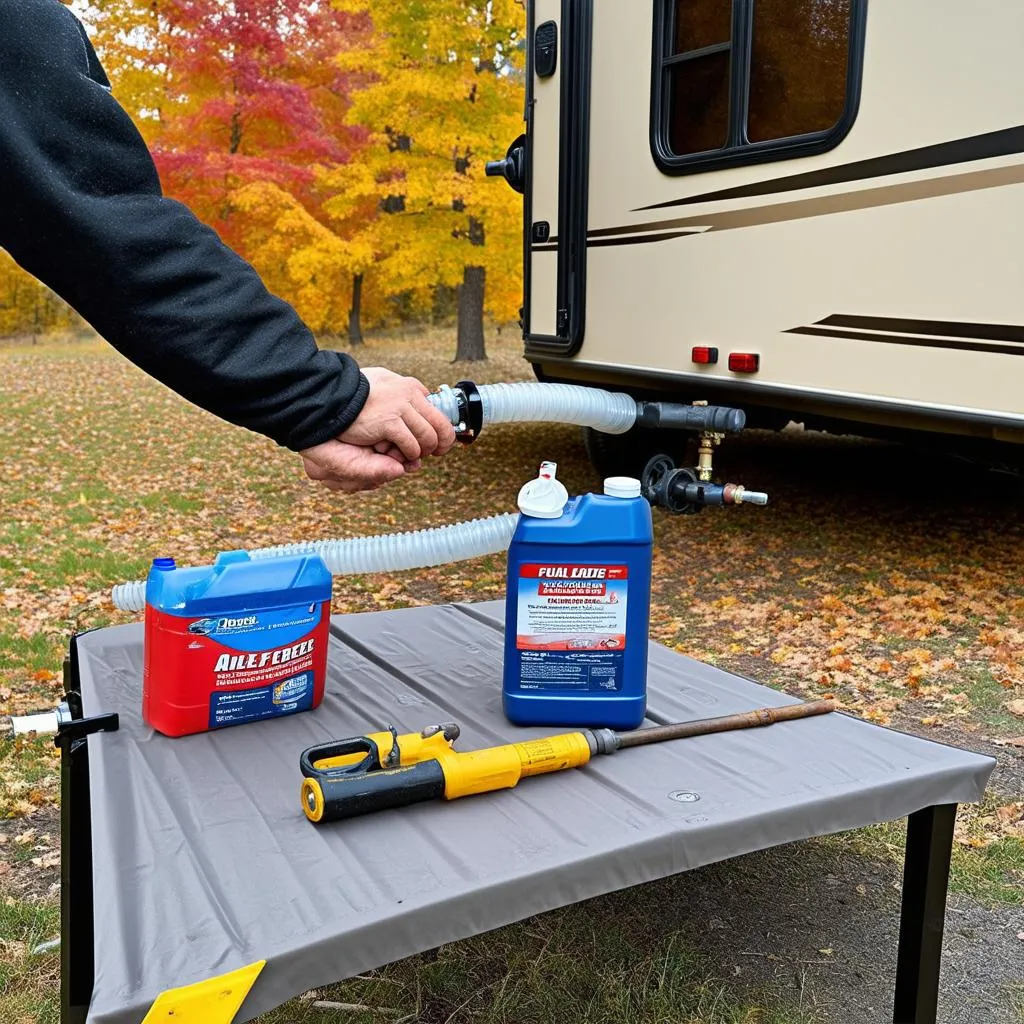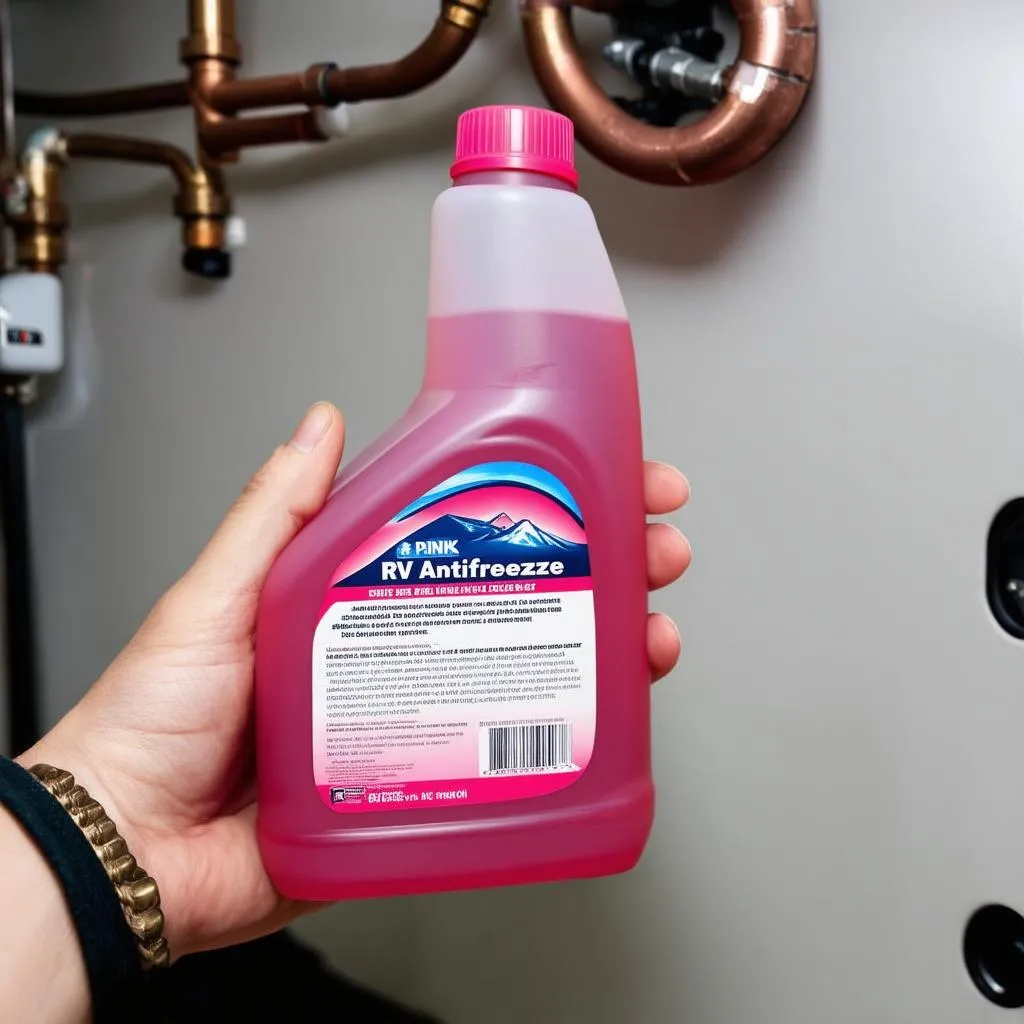Picture this: you’re nestled beside a crackling fire in your cozy travel trailer, snowflakes falling softly outside. Winter camping can be magical, but only with proper preparation. If you don’t winterize your travel trailer correctly, you risk coming back to burst pipes, a damaged water system, and a hefty repair bill. No one wants their travel dreams to turn into a nightmare! So, let’s dive into how to winterize your travel trailer like a pro.
Why Winterizing Your Travel Trailer is Crucial
When temperatures plummet, any water left in your trailer’s plumbing can freeze, expand, and cause significant damage. We’re talking cracked pipes, broken pumps, and a whole lot of headaches. Winterizing protects your investment and ensures it’s ready for adventures when the weather warms up.
How to Winterize Your Travel Trailer: A Step-by-Step Guide
1. Empty Everything!
This step is crucial. You need to remove all water from your trailer’s system. That includes:
- Fresh Water Tank: Drain it completely, remembering to open all faucets (hot and cold) to release trapped air and water.
- Water Heater: This is important! Drain the water heater entirely. A helpful tip from experienced RVers is to use a water heater tank rinsing wand to ensure it’s completely empty.
- Wastewater Tanks: Empty and flush your black and gray water tanks thoroughly.
- Pipes: After draining everything, use an air compressor to blow out any remaining water from the pipes.
2. Introduce RV Antifreeze
Using RV-specific antifreeze (never automotive antifreeze!) is essential to protect your plumbing. Follow these steps:
- Bypass the Water Heater: Most trailers have a bypass valve for the water heater. This prevents antifreeze from filling the tank unnecessarily.
- Pump Antifreeze: Use a water pump converter kit or pour antifreeze directly into the freshwater tank.
- Run Through All Systems: Open each faucet (hot and cold) and flush the toilet until you see pink antifreeze flowing. Don’t forget outside showers or any other water connections!
3. Don’t Forget These Details
- Appliances: Winterize appliances like your washing machine, ice maker, and dishwasher according to their manufacturer’s instructions.
- Batteries: Remove batteries from detectors, remotes, and other electronics. Store them in a cool, dry place.
- Food and Toiletries: Remove all perishable items and open containers of liquids that could freeze and expand.
- Seals and Vents: Check the seals around windows and doors for any cracks and re-caulk if necessary. Ensure all vents are closed and sealed tightly.
Winterizing Tips from a Seasoned Traveler
“When I first started RVing, I learned the importance of winterizing the hard way,” shares seasoned traveler, Sarah Jones, author of “The Open Road Awaits.” “After a particularly harsh winter, I returned to find a cracked pipe in my beloved trailer. It was a costly lesson, but one that taught me the value of thorough winterization.”
Travel Tip: Embrace the Off-Season
Winterizing your trailer doesn’t mean your travel dreams have to hibernate! Consider exploring destinations known for their mild climates, like the scenic Pacific Coast Highway in California or the charming towns scattered throughout the American Southwest.
FAQs About Winterizing Your Travel Trailer
Q: Can I use regular antifreeze instead of RV antifreeze?
A: Absolutely not! Regular automotive antifreeze is highly toxic and can be fatal if ingested. Always use RV-specific, non-toxic antifreeze.
Q: How much does it cost to have my travel trailer professionally winterized?
A: Professional winterization costs vary depending on location and services, but you can expect to pay around $100-$200.
Q: Can I skip winterizing if I store my trailer indoors?
A: Even if you store your trailer indoors, it’s best to winterize it, especially if the temperature inside the storage facility isn’t consistently above freezing.
Ready for Your Next Adventure?
Properly winterizing your travel trailer safeguards your investment and ensures it’s ready for countless adventures when warmer days arrive. Need more tips for RV maintenance or travel inspiration? Check out our other articles on TRAVELCAR.edu.vn, your ultimate resource for all things travel and RV living!
 Winterizing a Travel Trailer
Winterizing a Travel Trailer
 RV Antifreeze
RV Antifreeze

